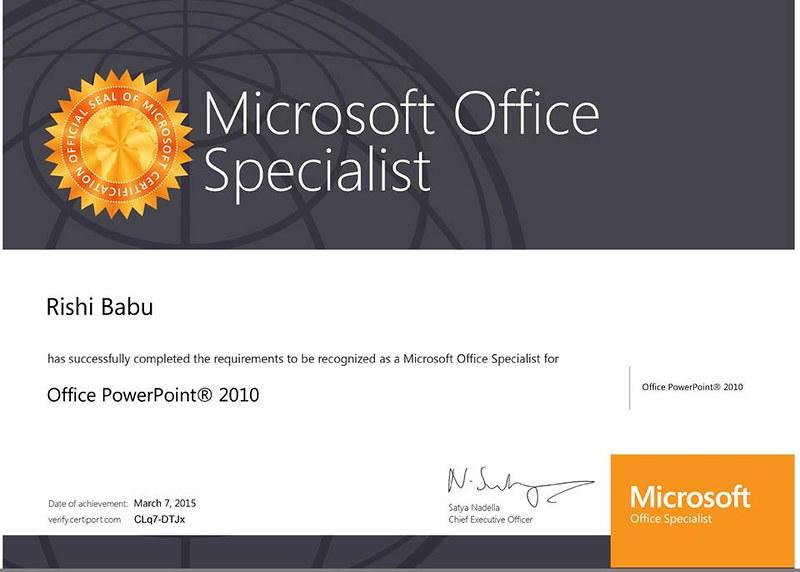Data entry operators play a role in storing data and solving related problems. Thus, many young people want to know how to become a data entry operator.
Besides the steps required to get this job, I will share its duties, skills, salary, and outlook. You will have a better view of the work of a data entry operator.
Keep reading for more!
Who Is A Data Entry Operator?
A data entry operator is a person who helps companies organize their data by typing it into computers or spreadsheets. This job is vital because it keeps the records neat and correct.

These operators need to be good at typing and paying attention to details so they don’t make mistakes. They work with various data types, like customer names, product numbers, and money figures.
Even though they often work remotely, they still need to talk to their team members sometimes to make sure they’re putting in the right data. Yet, some companies require data entry operators to work in the office.
How To Become A Data Entry Operator
Although you do not need a Bachelor’s degree for this position, you must have computer and data knowledge and skills. Also, I recommend a related certificate to increase job opportunities.
1. Educational Background
For most beginner data entry jobs, you’ll need at least a GED certificate or a high school diploma to guarantee that you have the basic skills for reading, writing, and working with numbers.
But if you want to boost your chances and learn more, I recommend an Associate’s or a Bachelor’s degree.
An Associate’s degree is like a step above a high school diploma. For this degree, you should focus on subjects like business or computers. With this degree, you’ll learn more about managing data and using basic computer programs.
Regarding the Bachelor’s degree, some employers might want you to have this. I recommend choosing a business, computer, or data science major. This degree can help you get into more advanced data jobs later on.
To find suitable programs, you can:
- Research universities/colleges that offer the degree you want.
- Visit their websites for the courses, requirements, and program details.
- Explore online platforms that offer accredited degree programs.
- Speak to academic advisors or career counselors for guidance on choosing the right path.
The choice of institution and degree program depends on your goals and circumstances.
2. Develop Software Skills

Most companies have their own special computer tools. So, when you know how to use these tools, you become more valuable at work.
Basic computer skills, such as proficiency in MS Excel, Word, or Access, help you finish your tasks quickly. It can even do some things automatically, so you don’t have to type everything yourself.
To learn these skills, I recommend starting with basics like how to move files, use the mouse, and type on the keyboard.
Then, get comfortable with MS Word (for writing), Excel (for tables), and Access (for managing info). In this process, online videos and courses on YouTube and Coursera can help you understand these.
Besides, learning keyboard shortcuts for common tasks can significantly speed up your work. For instance, Ctrl+C (Copy), Ctrl+V (Paste), and Ctrl+Z (Undo) are shortcuts that can save you a lot of time.
3. Get Certifications
Then, you need at least one relevant certification to showcase your expertise and increase your chances of getting a job because it gives employers confidence in your skills.
Some certifications you can get are:
- Certified Data Entry Operator (CDEO)
- Certified Data Entry Pro (CDEP)
- Certified Data Management Pro (CDMP)
- Microsoft Office Specialist (MOS)
When choosing a certification, make sure you meet its requirements. Some need you to complete certain courses or have a specific amount of experience.

4. Gain Relevant Experience
Employers are impressed with people with experience. It shows you can handle the work and be helpful to them. Thus, the next step you should take is to gain experience related to this job.
Experience means actually doing the job. It helps you understand data entry in the real world beyond just reading about it. Also, it improves your skills, accuracy, and speed in this job.
To gain experience, an internship is a great way to start. It’s a short-term job where you learn and work. You can seek them in fields that require data entry, such as administrative roles, customer service, or data management positions.
Otherwise, you can look for part-time jobs. Some places hire people to help with data entry for a few hours each week.
In this process, here’s my advice to keep in mind:
- When you’re working, ask questions and try to understand the tasks.
- Focus on the small details. Being accurate is vital in data entry.
- Plan your work and finish things on time.
- If you’re not sure about something, ask someone. Getting advice can help you do better.
- Keep a happy attitude, even if things are a bit tough.
- When you make a mistake, figure out what went wrong and avoid it next time.
- Be ready to do different tasks and use new tools. It’s a chance to learn.
- Be friendly with others you work with.
- Even if you’re good at something, remember there’s always more to learn.
- Decide what you want to learn from each experience. It keeps you motivated.
Don’t be afraid to start small and learn as you gain experience. The more you practice, the more confident and skilled you’ll become as a data entry operator.

5. Search For Jobs
Once you have the relevant experience, the next step is to search for data entry operator jobs through the following channels:
- Online job portals: LinkedIn, Indeed, Monster, and Glassdoor have extensive job listings. You can search for “Data Entry Operator” to find job openings.
- Company websites: Many companies post their job openings on their own websites.
- Temp agencies: These agencies can help you find short-term or contract jobs, which can be a great starting point.
- Job fairs: These events gather multiple employers under one roof. They provide a chance to interact directly with company representatives.
- Online freelancing platforms: Consider these platforms if you’re open to project-based data entry work.
- Social media: Some firms share job openings on their social media accounts.
When searching for a job, you should consider these factors:
- Company reputation
- Job role and duties
- Company culture
- Location
- Salary and benefits
- Career growth
While no job may be perfect, I recommend finding a balance between these considerations to choose the suitable one.

6. Tailor Your Resume
After searching for jobs, tailoring your resume helps you show that you’re a fit for the job you want. It proves you know what the employer wants and have the skills they need.
To know what to put in your resume, read the job ad carefully to understand the required skills. Then, pick out important words and use them to write your summary.
In the experience section, you should focus more on the same jobs and use numbers like “Entered 1000+ records a day.” I recommend using powerful words, for example, “Typed data accurately.”
After completing your resume, double-check for spelling errors and apply for your desired job.
7. Prepare For Interviews

After applying for a job, within a few days, if a company is satisfied with your skills, they will ask you for an interview. So you need to prepare to be confident and increase the chances of impressing the interviewer.
First, learn about the company’s background, values, products, and services to understand the company better.
Second, revisit the job description to know what they’re looking for. Think about how your skills match the role. Also, practice answering questions they might ask, like your strengths, weaknesses, and why you want the job.
Third, you should prepare examples of your data entry experience. For example, talk about cases where you handled data accurately and efficiently.
Don’t forget to brush up on any technical skills mentioned in the job ad. They might test your Excel or typing skills.
One thing that many people forget is to prepare questions to ask the interviewer at the end of the interview. I recommend this because it shows you want this job.
In the interview, choose professional attire that’s suitable for the company culture. Also, I recommend arriving a bit early because being punctual is vital.
The interview is for you and the company to see if you’re a good fit. Being well-prepared helps you show that you’re ready to excel as a data entry operator and contribute positively to the team.
Duties of Data Entry Operators
As a data entry operator, my overall duties ensure accurate and effective data flow management. The daily tasks include:
- Type different kinds of data into a computer accurately and quickly (data entry).
- Check for mistakes or things missing and correct them.
- Change or add data in databases whenever needed.
- Arrange the data so it looks neat and is easy to read.
- Research online occasionally to verify data or gather more data.
- Maintain logs or records of completed tasks, errors, and updates for reference and reporting.
Of these tasks, the most important one is the data entry. The remaining tasks will vary depending on the project.
Required Skills
Besides knowledge of computers and data, you need to have the following hard and soft skills to become a successful data entry operator:
- Type quickly and accurately to input data efficiently.
- Use basic computer OSs and software like Microsoft Office (Word, Excel).
- Create, manage, and organize electronic files and folders.
- Arrange and format data in a clear and organized manner.
- Be proficient in entering both numeric and alphanumeric data accurately.
- Skill in cross-checking entered data for errors and inconsistencies.
- Know basic arithmetic calculations to deal with numerical data.
- Pay attention to every detail.
- Efficiently manage tasks and meet deadlines while maintaining accuracy.
- Identify and solve issues that may arise during data entry.
- Effectively convey information to team members and managers.
- Team up with colleagues and other departments when required.
- Be patient and methodical when dealing with repetitive tasks.
Balancing hard skills, which are technical abilities, and soft skills, which are interpersonal qualities, is essential for excelling as a data entry operator.
Salary and Job Outlook
In 2023, a data entry operator can earn about $33,269 per year on average, including a base pay of around $31,496 and an extra $1,773. The salary can range from $21,731 (for entry-level positions) to $47,502 (for senior positions) yearly.
Regarding the job outlook, there might be 5% fewer data entry jobs from 2018-2028. But right now, there are about 132,345 job openings for this role. So you still have many opportunities.
Considering the job outlook, just because it’s reduced doesn’t mean you don’t have a chance to get this job. Instead, it shows that you need to try harder to win in this market.
FAQs
Is Data Entry Hard For Beginners?
No. It’s manageable for beginners with basic computer skills. It involves typing and accuracy, which can be learned over time.
Is The Data Entry Operator Job Stressful?
Data entry is generally not highly stressful. Yet, repetitive tasks and meeting deadlines can create stress.
How Long Does It Require To Be A Data Entry Operator?
It can take around 3 to 6 months of consistent practice and learning. Yet, becoming skilled and efficient might take closer to a year of experience and refinement of your typing speed and familiarity with relevant software.
Can I Become A Data Entry Operator Without Experience?
Yes, many data entry jobs are entry-level. Basic computer skills and accuracy are more vital. Moreover, some employers might provide training.
Conclusion
Above are my shares about how to become a data entry operator and details about its duties, skills, salary, and job opportunities.
You don’t need a formal degree to get this job but a background in computers and data and related software skills.
Start this journey today to quickly become a data entry operator!
